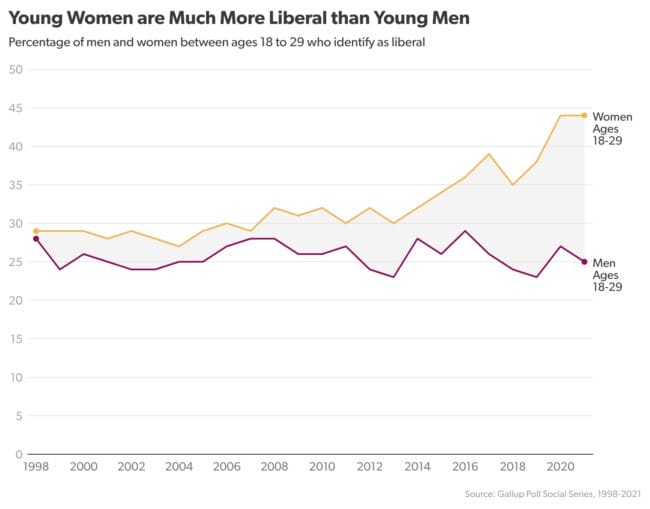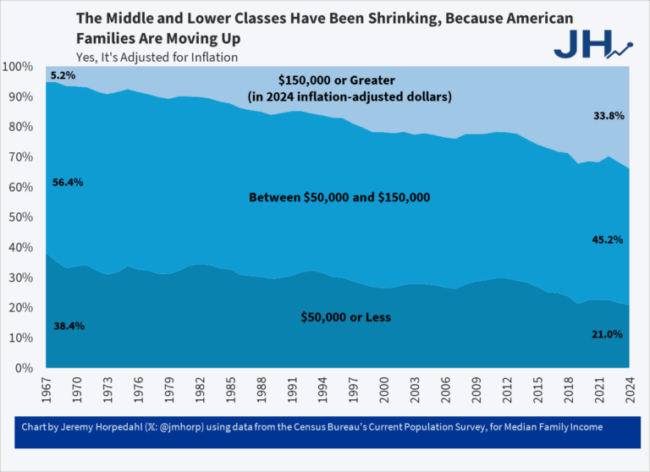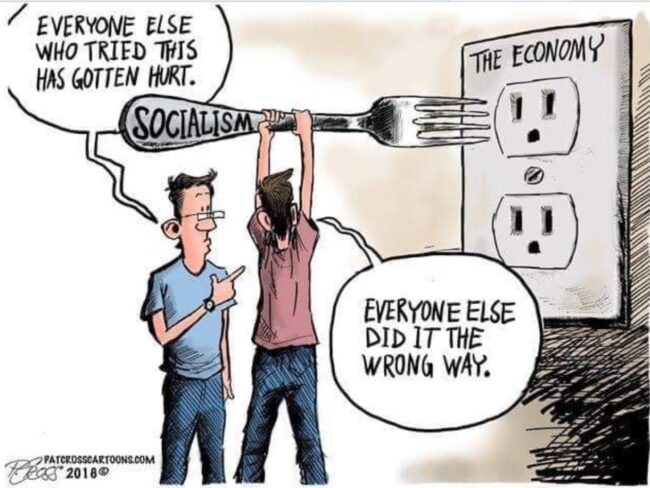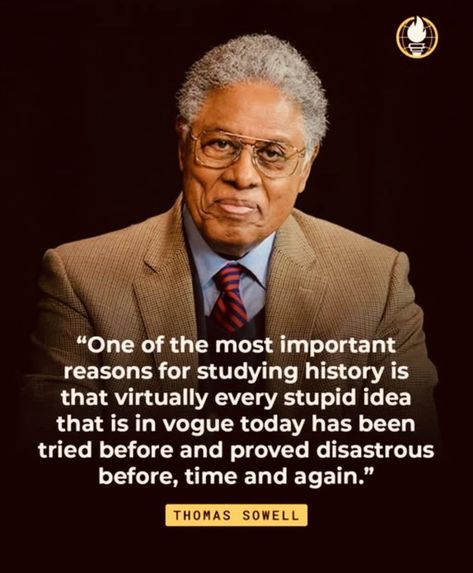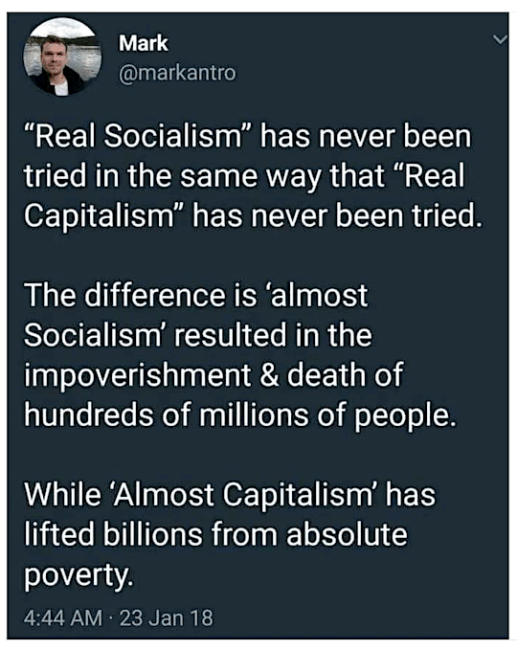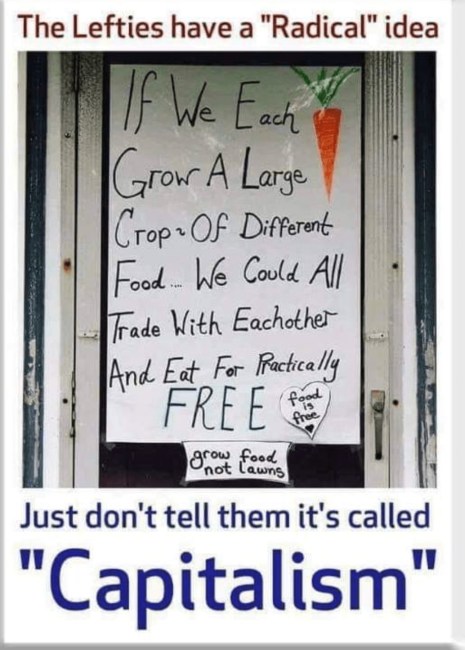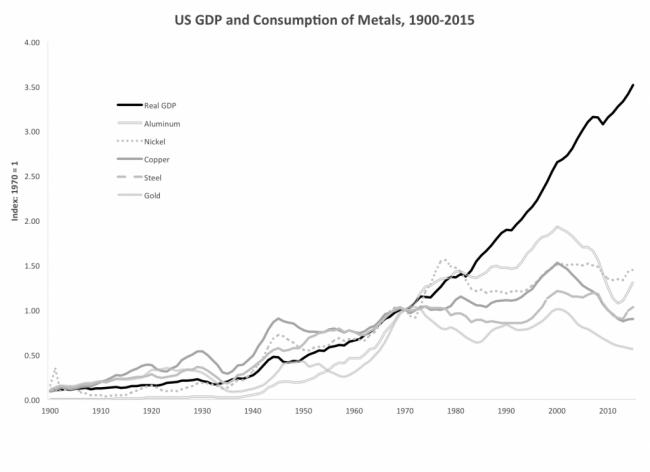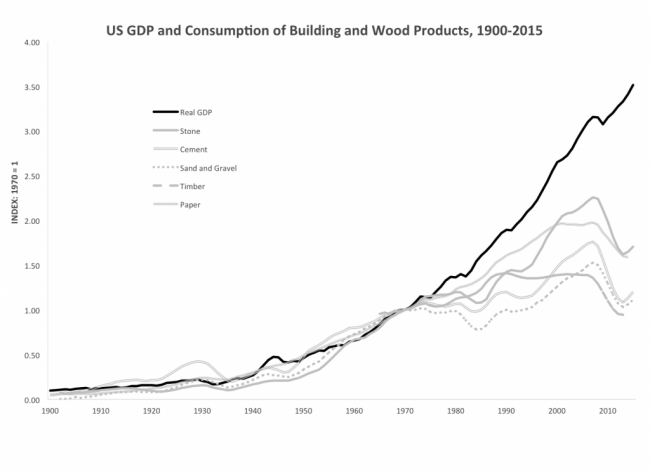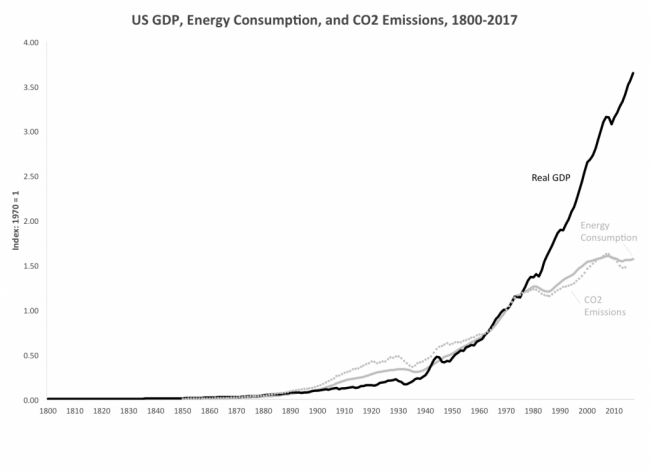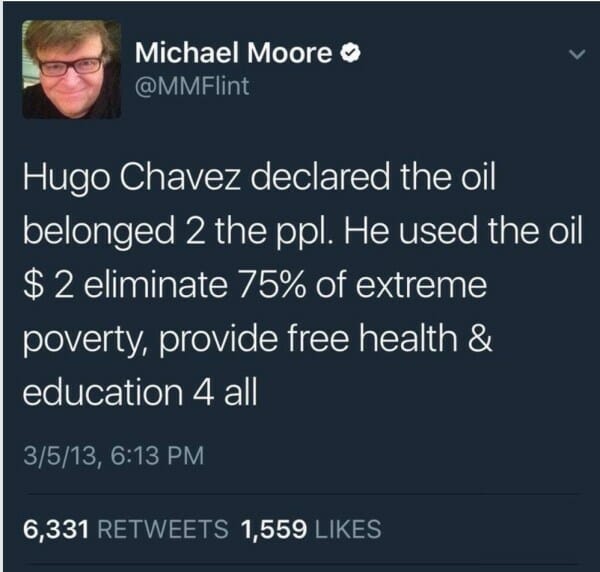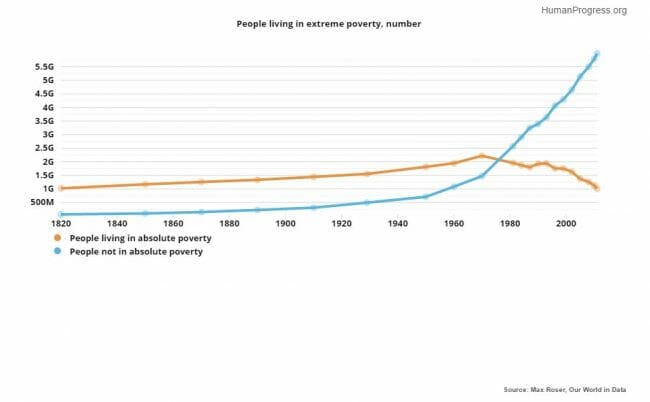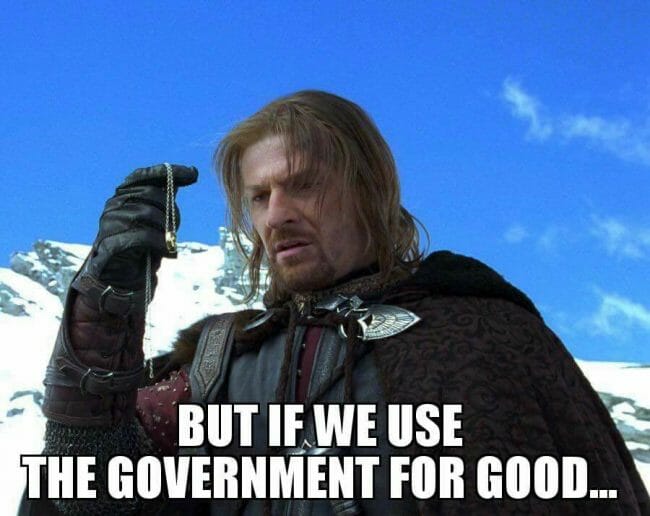Why use the language of Power and Privilege at all?
One of my favorite political books is Arnold Kling's Three Languages of Politics (free download here). It is a great reference for understanding why so much of politics devolves into talking past one another, and is a great guide for those who want to be persuasive outside of one's own tribe.
As background, I am a life-in-the-real-world (LIRW) libertarian who is most comfortable arguing on the freedom-coercion axis and based on economic efficiency. LIRW libertarian means that I don't answer every policy question with a knee-jerk anarcho-capitalist get-the-government-out-of-the-way policy prescription. I accept that government coercion is not going away and I can accept some state coercion in support of certain policy goals. However, in doing so I assign something I call the Cost of Coercion to policy proposals in balancing out the costs and benefits and the coercion cost I assign will be high. As such, then, I tend to discuss policy in terms of meeting goals with maximum economic efficiency and minimum levels of coercion.
In this article I want to talk about my (and other libertarians') attempts to engage (or failures to engage) Progressives on their preferred Oppressor-Oppressed axis. While I think everyone benefits from learning to engage with folks who speak different political languages, doing so is particularly important for libertarians in the United States because we are the odd man out in the current two-party system. Half our issues (e.g. free markets, limited government) require common cause with Conservatives while the other half (e.g., open immigration, drug legalization, gay marriage) require making common cause with Progressives. In this article I want to talk about my (and other libertarians') attempts to engage Progressives on the Oppressor-Oppressed axis.
To start, I feel like I am pretty good at understanding the Progressive point of view on many issues (e.g. my intellectual Turing test here on Progressive arguments for the minimum wage).
However, on the airplane yesterday I was looking back at my proposed trans-partisan plan on climate action and found I did little in it to excite Progressives. I still think that this is a very fair plan that could appeal to both Progressives and Conservatives, but I realize in retrospect that it does almost nothing to sell the plan to Progressives. The article is mostly economic efficiency arguments that can sway Conservatives (at times) but seldom have a lot of power with Progressives. Sure, the plan gives Progressives what they are asking for (a carbon tax) but I acknowledge in the article that there is evidence from the Washington State carbon tax vote that Progressives don't actually understand the benefits of a carbon tax very well. Here, for example, is how I discussed the shift from a myriad of scattershot government interventions to the carbon tax:
Point 1: Impose a Federal carbon tax on fuel....So what is the best way to reduce CO2 -- by substituting gas for coal? By more conservation? By solar, or wind? With biofuels? With a carbon tax, we don't have to figure it out or have politicians picking winners. This is why a Pigovian tax on carbon in fuels is going to be the most efficient possible way to reduce CO2 production. Different approaches will be tested in the marketplace....
Point 3: Eliminate all the stupid stuff...[in turn] I propose that we eliminate all the current Federal subsidies, mandates, and prohibitions that have been justified by climate change. Ethanol rules and mandates, solar subsidies, wind subsidies, EV subsidies, targeted technology investments, coal plant bans, pipeline bans, drilling bans -- it all should go. The carbon tax does the work.
Picture the social justice warriors at some college today -- are they going to be excited by this? I doubt it. But what if I said this instead:
We should shift climate efforts from all the disparate, scattershot efforts today to a neutral carbon tax that is impossible for the powerful and privileged to game to their advantage. Current climate programs are all more likely to benefit Wall Street bankers and crony political interests than they are to help the climate. For example, the Koch brothers have publicly admitted that their company is one of the largest beneficiaries of the current ethanol program, which was meant to benefit the climate but instead just pumps profits into a few well-connected multi-billion dollar corporations, while taking food from the poor and feeding it into people's gas tanks.
This second version, while it needs some polish, is clearly more compelling to a Progressive, and all of it is something I believe -- It's just not the first way I naturally defend the plan. I need to get better on this.
Power and Privilege are a Useful Framework (among others) for Analyzing History and Public Policy
I have studied a lot of history in my life, mostly as a hobby. When I first started studying history in secondary school in the 1980's, it was almost all presented as "great man" history -- i.e. history can be described as driven primarily by the actions of prominent individuals. Julius Caesar did this and Henry the VIII did this other thing, etc. Really, this approach to history was being overtaken even 100 years earlier than this, but I didn't really get exposed to other approaches until college. There, I began to learn that Marxist historians in the 20th century brought a different view, that most of history was driven by big social and economic and demographic changes rather than individuals -- think Hari Seldon if you know that reference.
But the Marxists had a familiar problem (other than the obvious one where they explain every event in history as a class struggle and proto-Marxist revolution): They brought a great new tool to the analysis of history but then declared that it was the ONLY correct tool. But there are plenty of historical turns where individuals mattered. The revolution in Rome from the Republic to the Empire was probably inevitable from the large forces at work, but was the end of the civil wars in favor of decades of peace inevitable without the acumen of Augustus?
Other groups have contributed yet more lenses for looking at history. I remember when it became de rigueur that history courses include lectures on life of the common person, the experience of women, and on other groups that don't have a big presence in the traditional historic record. I initially rolled my eyes thinking that this all was a politically correct placeholder, but I eventually found it fascinating -- to the extent that I have since taken whole courses solely on the experience of common people in the Middle Ages and the Roman Empire.
To this same end, power and privilege is yet another useful framework for analyzing history. The problem in my mind comes in the fact that so many students go through college, even graduate from college in history, looking at the world ONLY through this one lens. To me this is madness. It is like trying to play golf with just a 2-iron or to do math with just cosines.
Libertarians and the Power & Privilege Language
As demonstrated in my climate example earlier, there is no reason libertarians cannot engage progressives on the power and privilege or oppressor/oppressed axis. Libertarians care a lot about the ability of the individual to be able to make decisions and live their life without coercion. Many of the same things that upset progressives -- racism, sexism, various sorts of sexual prohibition, narcotics prohibition, fraud, migration restrictions, military interventionism -- also upset libertarians. Libertarians and progressives both talk a lot about power and abuse of power, though granted they fear different sorts of power: libertarians tend to have more fear of government power, while progressives tend to fear any sort of economic power. But even getting that far is at least a basis for meaningful discussion. If you want to have an interesting discussion with a progressive, do what I did with one of my progressive in-laws and watch Michael Moore's Capitalism: A Love Story together. The progressive will gladly watch it with you because they will think you are about to get schooled. But watch as the movie unfolds -- failure after failure that Moore wants to describe to capitalism are in fact mostly due to crony government interventions to which libertarians are strongly opposed. There is a surprising amount of common libertarian-progressive ground in the movie if you look past Moore's interpretation of these failures and pay attention to their actual causes.
This is what I had in mind when I wrote my recent article in Regulation Magazine, "How Labor Regulation Harms Unskilled Workers", to try to write something about labor regulation that was pitched more to progressives than to libertarians and conservatives. Too often articles on the minimum wage focus solely on economic efficiency, or worse, on how labor market interventions negatively impact businesses. When progressives see that something negatively impacts businesses, their first reaction is "awesome, let's do more of it!" Not a great sales approach. In my article, I was never going to convince progressives to give up on regulation of the terms and conditions of labor altogether -- it is simply too deeply ingrained in their philosophy that workers are powerless in the face of employers and need external protection. But it might be possible to show progressives why something like the minimum wage can be a bad anti-poverty program that it actually tends to hurt the poorest and most vulnerable and least skilled.
The absolute best example I can think of how libertarian attempts to engage progressives have been terrible is the book by Nancy MacLean called Democracy in Chains. The book makes the weird and not very well substantiated claim that James Buchanan, who won a Nobel Prize for his work in public choice theory, was heavily influenced by southern slavery supporters like John Calhoun, and thus, uh, public choice is racist or evil or something. The book tends to get lauded by people who mostly like its thesis but did not read it and torn apart by academics who are hugely skeptical about its logic and factual basis. The most amazing thing about the book is just how incurious Ms. MacLean is about public choice theory itself -- the head of the national organization of public choice economists is a professor on her own campus, with an office just a short walk away, yet she never consulted anyone in the field.
Here is why I highlight it, and not to beat up on a progressive who in turn beat up on a libertarian icon. Public choice theory -- as I and most people who have studied it understand it -- should be tremendously interesting to progressives, so much so I think it could be a core text they study. Not because I want to make them not-progressives (I will send them to Hayek for that) but because public choice theory says so much about how power and privilege are created and sustained. Want to understand why Wall Street makes so much money and is so seemingly immune to accountability, check out public choice theory. Want to know why you and I spend billions to subsidize profitable corporations like Boeing or Koch Industries, check out public choice theory. Want to understand why public interventions often fail so you can make better interventions in the future, check out public choice theory.
The reason progressives don't look at public choice theory this way is in large part because libertarians have adopted public choice theory as their own and use it most often to push back on nearly every government intervention. In particular, the Koch Brothers and Cato love public choice theory and use it to argue for small government, so in the tribal politics of the day, this means that progressives have to hate it. I would argue that the best description of Nancy MacLean's approach to James Buchanan and public choice theory in her book (and her more-than-apparent lack of desire to learn anything about it) is the fact that public choice theory is associated with the Koch Brothers and thus she wanted to bring it down to help bring down the Koch siblings who have become a progressive bete noire (despite their actually supporting a lot of progressive causes like gay marriage). Ironically, from my limited reading, James Buchanan appears to have treated public choice more as a guide to good government than a trump card to be played against any government intervention.
This is why the book I would most like to write, if I had the academic chops and time to write it, would be "Public Choice for Progressives: What James Buchanan can teach good government and equalizing power and privilege." There are a lot of things libertarians and progressives are never going to agree on, but there are enough that we can agree on to make it worthwhile to learn their language.
